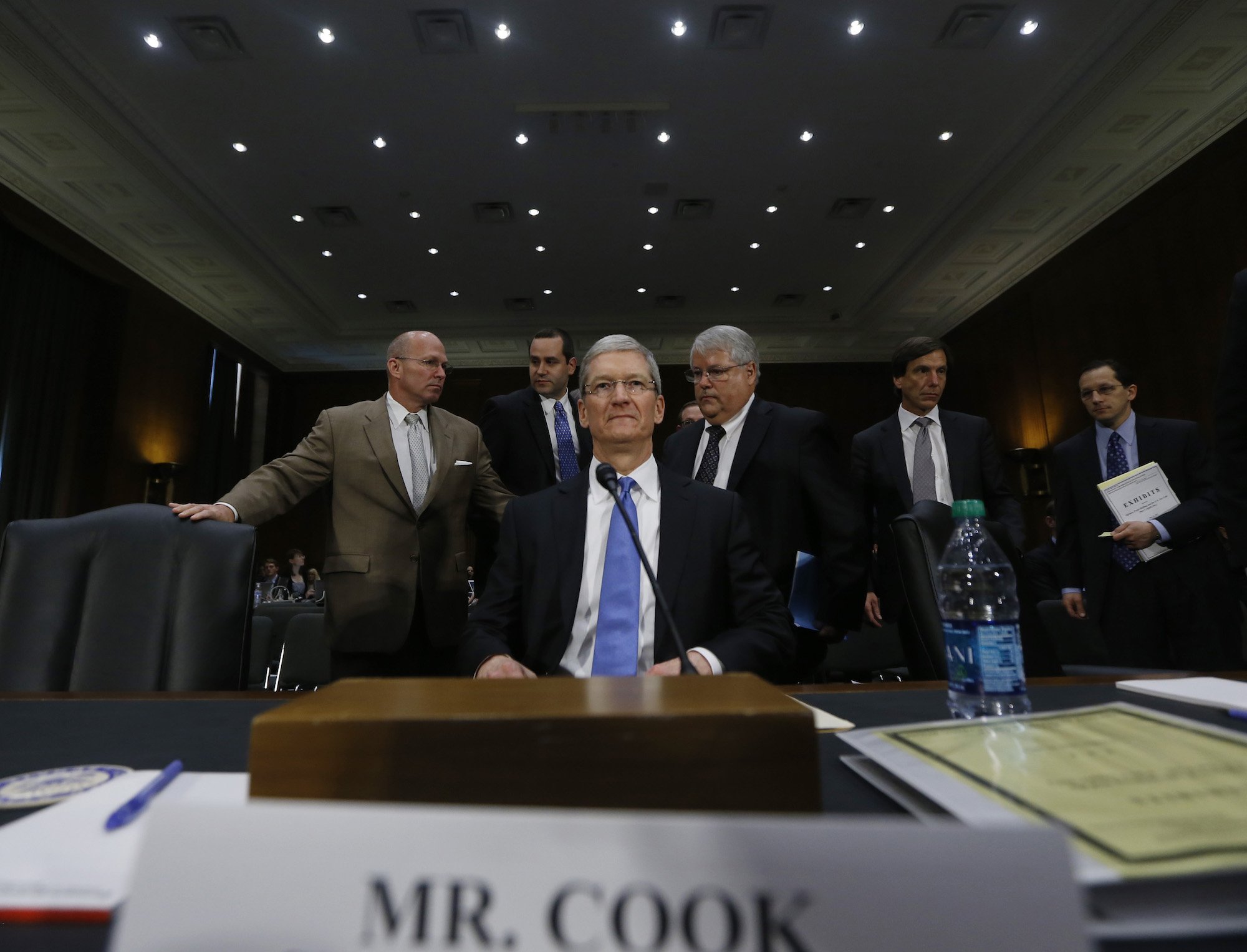Apple and the FBI: The Cost of Security
By Ben Marchman

Imagine if the police had a way to stop terrorist attacks before they happened. Imagine if the police could have prevented the horrific November Paris attacks, saving 130 lives. For a family member of those who were lost on that night, the thought could drive you insane. If the police had only just a hint that something was going to happen, maybe it could have been all prevented. But in our post-9/11 society, these seemingly morally unambiguous scenarios take on a more sinister light. Maybe these terrorist attacks could have been stopped, but at what cost? Increasingly, governments around the world see the solution in information and information technology. Either through getting past encrypted cell phones or taking large quantities of data to analyze for possible terrorist activity. The question we must ask though is, does privacy mean nothing compared to the needs of the state?
Barely three months into the New Year and already these questions are being fought over. In the United States, Apple and the FBI continue to wage both a legal and public relations battle over the locked phone of one of the San Bernardino shooters. And in the U.K., the government has released a now finished draft of the “Investigatory Powers Bill” which would allow police and intelligence services more power in accessing records and data. Both governments seek to protect national and public security through these measures which would allow them to hopefully find out important information about possible terrorist attacks. These scenes have long been a part of the new international reality following 9/11. Governments propose laws that seek more power in order to secure against attack. Interestingly, however, there has been a new player on the scene which is changing the shape of this long held reality; tech companies.
Increasingly, large multinational corporations such as Apple and Google, have begun to challenge government requests for information and publicly speak out about them. In February, Apple CEO Tim Cook openly challenged FBI requests to create software which would bypass security settings on one of its devices. Apple even submitted a written statement to a joint committee within U.K.’s parliament advocating for personal security and privacy. It is hard to say whether this movement by tech companies, and especially Apple, is driven by concern over personal privacy or security of their own systems. As Cook even admitted, by creating software to override security features, Apple risks allowing hackers and others to abuse their system. Whatever their true reasons, companies have begun taking hard stances on attempts by governments to override encryption and bypass security measures. However, these sorts of scenes will continue to occur, especially as terrorist organizations such as ISIS rely more and more on encrypted messaging platforms to communicate. It seems that these large companies and the various world governments see the problem in very different ways, but they do not have to.
As many of these tech companies have pointed out, they are not against helping governments accessing information that could legitimately help protect people. However, many police and intelligence agencies see the debate in absolutist terms. In an appearance before the House Judiciary Committee, FBI Director James B. Comey said that while Apple unlocking the San Bernardino shooter’s phone may lead to similar requests, highly encrypted documents and messaging may risk national security. Similarly, the Investigatory Powers Bill’s language on encryption remains vague possibly leading to future government requests in the name of national security. These two governments, and their respective intelligence agencies, no doubt truly believe that increased encryption and resistance by tech companies is tantamount to a national security risk. The irony, as Telegram founder Pavel Durov explains, is that a system is either secure or not secure. Getting rid of encryption and creating software “back doors” allows governments to access data, but also allows criminals and terrorists to do the same. In other words, while the government wants to see this debate in black and white terms, it really is not that simple.
It is a completely romanticized notion that the FBI or any government entity can swoop in and stop all horrors that may befall citizens of the world. One need only think to the countless “lone wolf terrorists” that have and will continue to harm people to know that it is impossible to watch over everyone at all times. After 9/11, governments seemed to take the stance that national security concerns took precedence over matters of privacy and personal liberties. The current rise of tech companies defending and upholding privacy and encryption is a sign of changing attitudes towards this post-9/11 belief. It appears that we may be on the first steps towards eroding the long held world government mantra that security can only be achieved if we willingly wave away our privacy and personal freedoms.
